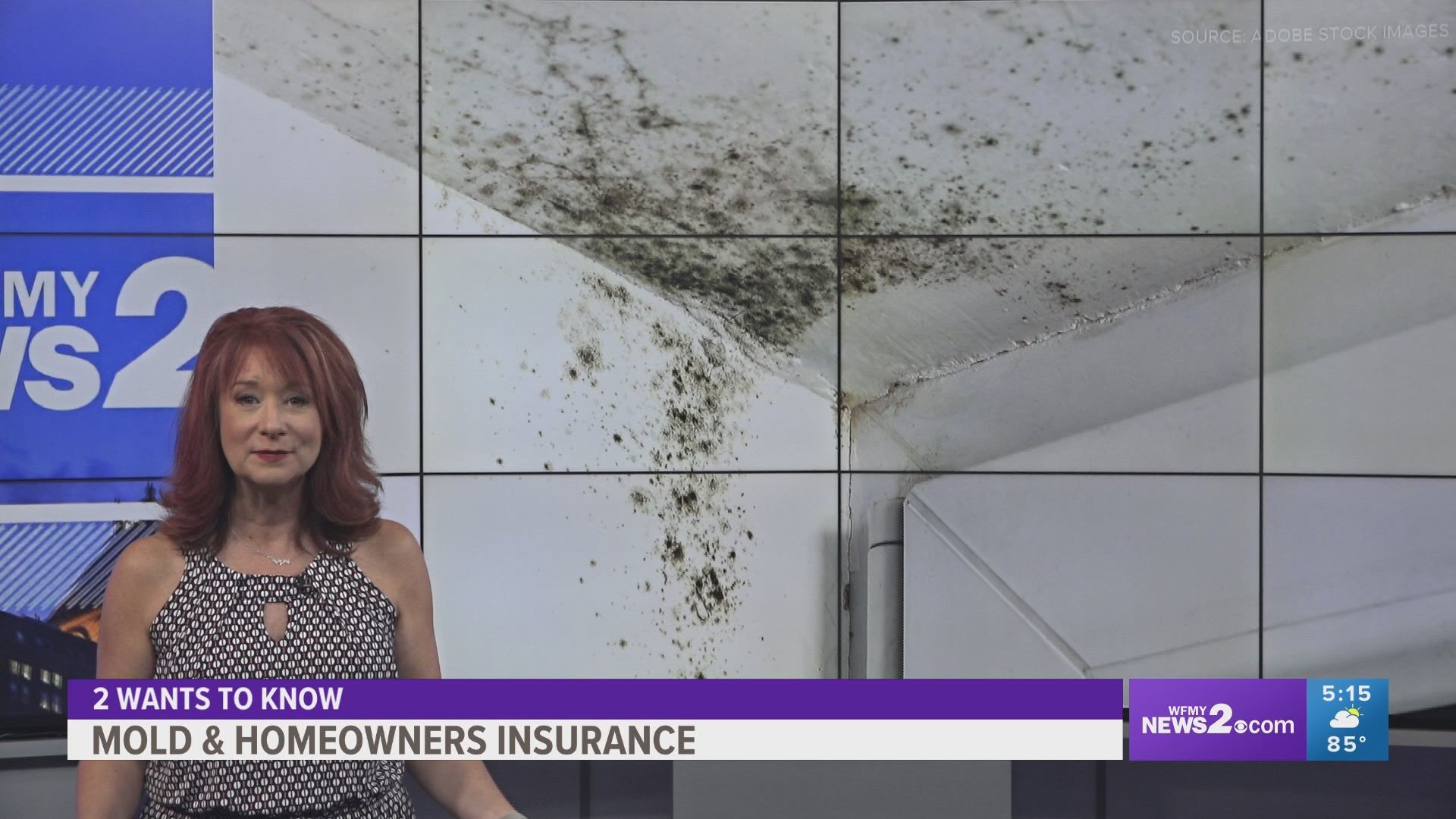GREENSBORO, N.C. — Just a few days ago WFMY News 2 reported on the mold discovered inside an Alamance-Burlington Elementary school and we followed up on the progress of that cleanup today. This mold finding stirred up a lot of emails about mold in homes and apartments. And people are curious about what insurance covers or what are landlords required to do.
First, let's cover homeowners’ insurance policies and mold.
Mold damage can cost thousands of dollars and most insurance carriers will not cover the cost of treatment and removal.
Why doesn't your homeowner's policy cover mold treatment and removal? Because often that mold happened over time, like an under-the-kitchen cabinet connection that's been leaking for a while. This would be considered a maintenance issue you should have taken care of.
Insurance is for emergencies, like a pipe that burst in your home and is causing water to rain down from your ceiling.
What should renters do if they spot mold somewhere?
“The ideal thing is to report in writing, that leaves a paper trail. Many times, we call a landlord and they say it is the first time they've heard of the issue,” said Adolfo Briceno, Human Relations Administrator for the City of Winston-Salem, Landlord/Tenant Mediations.
Take pictures and document what the issue is. Make sure you are clear about what the issue is, what the expectation is. In North Carolina, the landlord is required to fix what's causing the mold, like the leaky pipe, within 30 days. But there is no law that requires the landlord to clean up the mold.

